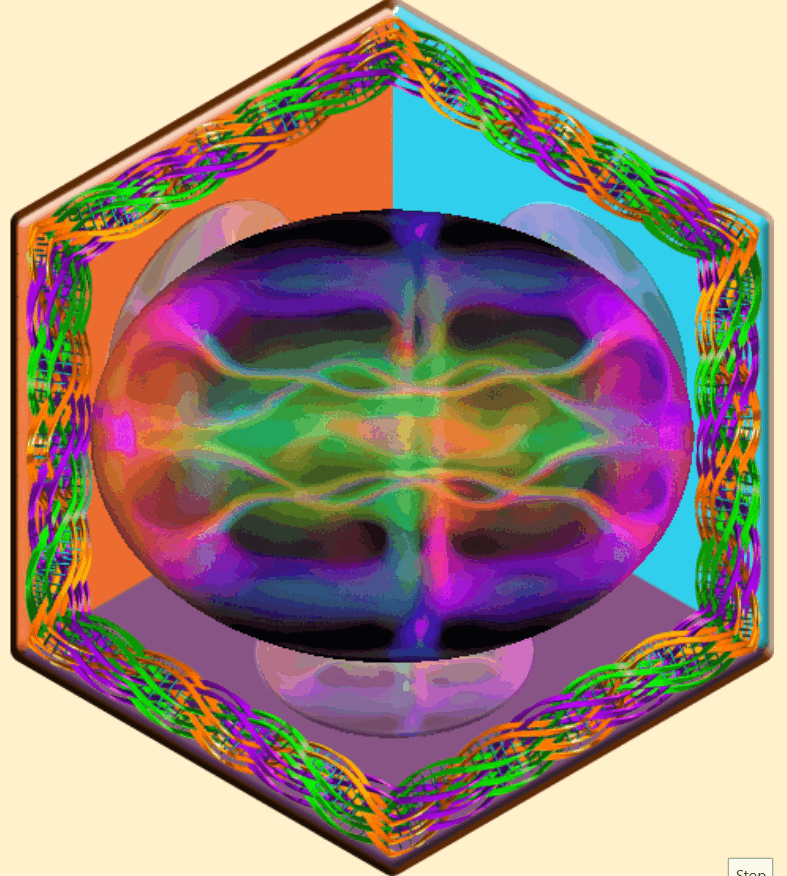
Overview
BEC Time Crystals constitute a novel state of matter wherein Bose-Einstein Condensates (BECs) demonstrate periodic motion in time, effectively breaking time-translation symmetry. This phenomenon presents profound implications for quantum mechanics and non-equilibrium thermodynamics, while also offering potential applications in quantum computing and advanced technological systems.
Fundamental Theses on BEC Time Crystals
1. BEC Time Crystals Formation
Bose-Einstein Condensates under specific conditions can transition into a time-crystalline state characterized by periodic motion in time, thereby breaking time-translation symmetry (AIP, PhysRevB).
2. Magnon BECs
Magnons, defined as collective spin-wave excitations in magnetic materials, are capable of forming BECs. Notably, magnon BECs within materials such as yttrium iron garnet (YIG) films exhibit time-crystalline behavior (AIP, PhysRevB).
3. Experimental Realization
Time crystals have been experimentally realized in magnon BECs, with experiments demonstrating tunable periodicity in both temporal and spatial dimensions at room temperature (PhysRevB).
4. Applications and Implications
Magnon BEC time crystals offer novel pathways for exploring dynamic phases of matter and hold potential utility in quantum devices and foundational physics research (AIP).
Introduction
This review examines the emergent phenomenon of Bose-Einstein Condensate (BEC) time crystals, with a focus on magnon BECs. Time crystals, as a state of matter, feature particles exhibiting periodic temporal motion, contravening the conventional time-translation symmetry. Recent experimental progress has enabled the realization of time crystals in magnon BECs, specifically in yttrium iron garnet (YIG) films, under ambient conditions. These systems exhibit adaptable periodicity in time and space, offering a unique framework for investigating dynamic matter phases. This review delineates the mechanisms underpinning BEC time crystal formation, experimental methodologies for realization, and broader implications for quantum technology and theoretical physics. By synthesizing the current state of research, it aims to chart future directions in the study of BEC time crystals.
Key Features of Time Crystals
1. Temporal Periodicity
Time crystals demonstrate repeating patterns in time, maintaining this periodic motion without external energy input (Wikipedia, Andrew Gibson).
2. Breaking Time-Translation Symmetry
Unlike conventional crystals that break spatial symmetry, time crystals disrupt time-translation symmetry, establishing a repeating temporal structure (Wikipedia, Andrew Gibson).
3. Non-Equilibrium State
Time crystals exist inherently in non-equilibrium states, distinguishing them from conventional matter that typically seeks thermal equilibrium (Wikipedia, Andrew Gibson).
4. Quantum Ground State Motion
Time crystals exhibit motion within their quantum ground state, a phenomenon compliant with thermodynamic principles within the quantum framework (Physics APS, Andrew Gibson).
5. Experimental Realization
Practical realizations of time crystals include systems such as trapped ions and spin chains, showcasing stable and repeating temporal patterns (Physics APS, University of Melbourne).
Vortex Dynamics in BECs
The advancement of research on quantized vortex excitations in atomic BECs has facilitated the generation and manipulation of vortex ring structures. Novel approaches utilizing artificial magnetic fields generated by optical nanofibers have been employed to:
- Generate and control superfluid vortex rings.
- Explore vortex ring lattices and intricate three-dimensional vortex configurations in toroidally confined superfluid BECs.
This line of research broadens the understanding of superfluid dynamics, with potential applications in quantum computing and related fields.
Conclusion
BEC Time Crystals signify a revolutionary stride in quantum mechanics, challenging traditional notions of symmetry and equilibrium in matter. Investigations into their properties, experimental validations, and applications offer unprecedented opportunities for technological innovation and deeper comprehension of physical laws.
Bibliography
- Bose-Einstein Condensates: Magnon time crystals and dynamics. Applied Physics Letters, 124(10), 100502. https://pubs.aip.org/aip/apl/article/124/10/100502/3268424/Magnon-Bose-Einstein-condensates-From-time
- Collective spin-wave excitations: Time-crystalline behavior. Physical Review B, 100(2), 020406. https://link.aps.org/doi/10.1103/PhysRevB.100.020406
- Observing time crystals. Physics APS. https://physics.aps.org/articles/v14/132
- Time crystals: A groundbreaking quantum state. Andrew Gibson. https://andrewggibson.com/2024/06/19/time-crystals
